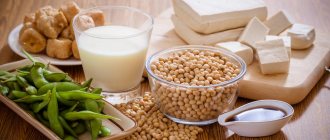What is L-leucine, its role in the body
L-leucine is an essential branched-chain amino acid that is not synthesized by the body on its own. This amino acid is an integral part of protein molecules that are involved in the synthesis of new cells. In medicine, the amino acid is used in the treatment of liver cirrhosis, anemia, dystrophy, polio, neuritis, and mental disorders. In the food industry, L-leucine is known as E641 and is a flavor enhancer.
The main advantage that has made the amino acid so popular is the increase in anabolism. Supplementing with leucine helps build muscle mass, also aiding in faster recovery. In addition, the amino acid is able to enhance the synthesis of collagen, which preserves the integrity of tissues, preventing aging and withering of the skin and muscles, and preserves the integrity of joints. It is the loss of collagen that leads to tissue aging, since collagen production gradually begins to deteriorate from the age of 30. Consequently, taking amino acids will also help maintain beauty and health.
It was also found that leucine regulates fat deposits, namely, it can reduce them. This is due to the stimulation of the production of the uncoupling protein gene, which is capable of burning fat. Studies have shown acceleration of metabolic processes, burning more energy, and the amino acid also reduces the amount of accumulated fat, even without changing the diet.
What are the types of amino acids?
Protein is made up of 20 amino acids. 8 of them are not synthesized in the body and are called essential, and the remaining 12 are replaceable or conditionally replaceable, that is, our body partially or completely covers its needs.
Each group of amino acids has its own representatives. For example, the category of essential elements includes elements such as lysine, isoleucine, valine, phenylalanine and others. The second group includes serine, cysteine, glutamate, asparagine, aspartate, and so on. All these elements are infinitely useful for the body and their content in the required volume is mandatory.
What foods contain leucine?
Since leucine is not produced in the human body on its own, it should definitely be taken not only from supplements, but also from food.
Plant sources of leucine:
- Corn grits.
- Millet cereal.
- Unpolished rice.
- Soy.
- Beans.
- Peas.
- Nuts.
- Sesame.
Animal sources:
- Dairy products.
- Eggs.
- Cheese.
- Fish, squid and red caviar.
- Beef, beef liver, lamb, pork.
- Turkey, chicken.
Essential amino acids include those amino acids that the athlete’s body is not able to reproduce on its own; these amino acids enter the body only with protein foods. Many of you may have wondered which is better: Protein or Amino Acids? Let us list which essential amino acids are included.
- Valin. This amino acid bypasses the filter barrier in the liver and is used by every muscle fiber in the body.
- Histidine. This amino acid absorbs ultraviolet rays. It is extremely important for the blood and takes part in the creation of red and white blood cells. Certain doses of this amino acid can cure anemia, allergies, artiritis and ulcers of the gastrointestinal tract.
- Isoleucine. Fills muscles with strength. Promotes faster recovery, as well as the creation of hemoglobin.
- Leucine. Slows down the destruction of muscle fiber, helps quickly heal wounds, bones and tendons.
- Lysine. Helps maintain oxygen balance in the body, growth of bones, cartilage, and collagen creation.
- Methionine. Helps increase antioxidant levels (glutathione) and lower cholesterol levels. Helps eliminate toxins.
- Threonine. Removes toxins. Reduces fat in the liver.
- Tryptophan. Helps in testosterone synthesis.
- Phenylalanine. Helps with mental work, improves memory, improves mood. Treats depression, reduces appetite.
Conditionally essential amino acids are amino acids that, at a particular age and type of metabolism in a particular person, are not created in the required volume. Let's list the conditionally essential amino acids.
- Arginine. Promotes the production of insulin, glucagon and testosterone. Participates in wound healing and helps improve the immune system. Has close contact with testosterone production.
- Tyrosine. Improves mood, helps in the production of many elements.
- Cysteine. Destroys many toxic substances. Improves immunity.
Fortunately for people who don't eat meat, poultry, or fish, you can find all the essential amino acids in plant foods. Such nutrition will have a positive effect on the body, but it can be called healthy and balanced if there is a good variety of these plant products. Here is a list of plant products that completely replace meat products, according to essential amino acids: grain products, legumes (beans, soybeans, lentils, peas, beans), mushrooms, nuts (peanuts, walnuts, cashews, almonds, hazelnuts, pine), seeds ( pumpkin, wheat, flax, sesame), chickpeas, eggs, rye, brown rice, lentils, dairy products (milk, cheese, sour cream, kefir, yogurt, cottage cheese), bananas, dates.
Essential amino acids in meat for people whose diet includes meat: beef meat, pork meat, lamb meat, beef liver, chicken meat, turkey meat, pink salmon, carp, Atlantic salmon, herring, cod, shrimp fillet, squid fillet. As you can see, absolutely all essential amino acids have their own analogues, depending on your food preferences. And at the same time, it is not necessary to limit yourself only to meat foods and believe rumors that plant foods will not be able to provide the required volume and quantity of essential amino acids for the body.
The lack of essential amino acids is, of course, that they are not able to be produced in the body independently and a person must supplement their volumes in the body daily with food intake. A lack of some essential amino acids in the body can harm a person in some cases. And so, the main difference between non-essential amino acids and essential ones: essential amino acids are not synthesized in the human body, non-essential ones are synthesized.
Biosynthesis of non-essential amino acids
Modern scientific research tells us that humans, during their development, lost the ability to produce all amino acids. Nonessential amino acids (alanine, aspartic and glutamic acids and their amides, asparagine and glutamine) are obtained as a result of transamination from intermediate metabolites - 2-keto acids. Proline is produced in the required volume from glutamate, and serine, glycine and cysteine are themselves natural metabolites of the human body.
The biological role of essential acids is to be an indispensable material in the construction of all muscle fibers, individual cells of bones, cartilage and hair. Without amino acids, human life seems impossible. It is impossible to live, grow and develop normally. The presence of a huge variety of amino acids in an athlete’s diet and large volumes of consumption will help the body function normally. Protein containing amino acids is the basis of the diet of any person. Essential amino acids provide the structure and catalytic functions of enzymes and hormones.
See also
Amino acids for weight loss Which is better: protein or amino acids Amino bcaa 4200 maxler ANS PERFORMANCE HIT
Why is the amino acid leucine used in sports?
In sports, leucine supplements are usually obtained from BCAAs. In the right ratio and with the synergy effect with isoleucine and valine, leucine becomes a powerful anabolic steroid that is involved in the process of gaining muscle mass. If we talk about bodybuilding, where the advantage is gaining muscle mass, then additional building materials from essential amino acids can speed up this process many times over, and without them, gaining weight is impossible.
At the same time, during drying, leucine can accelerate the fat burning process and prevent catabolic effects. Therefore, the amino acid is necessary at any stage of preparation. In addition, leucine speeds up the process of muscle recovery after training, and also heals wounds faster. And this quality is necessary for absolutely all athletes, regardless of the sport. It also acts as a source of energy, therefore, it improves all sports performance, both strength and endurance.
Essential amino acids in the body
Amino acids are functional units from which the body builds its own protein. When food enters the digestive system, it breaks down into tiny particles, in particular proteins into peptides, and then into amino acids, which are absorbed into the blood and travel throughout the body.
General structure of an amino acid. Photo: yandex.ru
Our body does not absorb all the substances that are absorbed; some can be spent on obtaining energy or converting it into another type of substance, but a significant portion goes to create its own protein. And here the body has a reserve site; it can create some amino acids itself from the material that has already been received, but some, on the contrary, cannot synthesize. These amino acids are essential for humans. If they are absent, proteins cannot be structured, and accordingly, certain biochemical processes cease to occur. If this continues for a long time, then a disorder occurs, leading to various diseases.
Benefits of leucine
- Participates in protein synthesis, accelerating the process of increasing muscle mass.
- Acts as a source of energy during loads.
- Reduces catabolism.
- Lowers blood glucose levels.
- Speeds up recovery and prevents fatigue.
- Strengthens the immune system.
- Promotes burning of excess fat, prevents obesity.
- Improves skin quality by increasing collagen production and slows down the aging process.
- Accelerates wound healing.
How to take leucine for bodybuilding: instructions for use
To calculate your individual leucine requirement, you can use the formula:
33 mg * body weight.
The average athlete needs 4 to 6 grams of leucine. It is found in powder and tablet form, the latter is washed down with water, and the powder is diluted with water or juice.
In the composition of BCAA, leucine is in the leading position and contains two or four times more than other acids, this is evidenced by the ratio on the manufacturer’s packaging, which indicates 2:1:1 or 4:1:1. Consequently, dosages vary greatly, so follow the dosage recommendations on the label.
Typically, BCAAs are consumed 2 servings per day.
- On training days, take 1 serving half an hour before training, and the second serving immediately after the end. If training is long, BCAAs can be taken during exercise.
- On rest days, 1 serving is taken immediately after sleep, and the second during the day between meals.
What are amino acids? Harm and benefit
Amino acids are organic compounds, those “building blocks” that make up protein molecules - the basis of any living organism. Protein is an essential element, the basis for the functioning of our body. Our muscles and body, bones and internal organs, hair and nails are made of protein. Hormones and bioenzymes are also based on protein compounds.
It is necessary to eat protein and foods rich in essential amino acids daily to maintain a healthy body. If we compare proteins and amino acids, the latter have great biological value for our body.
The 20 amino acids obtained from food are especially important for our health; they have different compositions and many functions. Scientists separately identify a list of 8 amino acids, calling them essential. This means that our body cannot synthesize them on its own, so they can only enter the body with food.
You will be surprised to learn that the animal body is capable of independently synthesizing all types of amino acids - both essential and non-essential. That is why every person who cares about their health needs to take a competent approach to compiling a daily diet. If it is difficult to obtain essential amino acids from food, you can freely purchase dietary supplements or specialized vitamin complexes at the pharmacy.
Article on the topic:
High Protein Foods
What sports nutrition can you combine L-leucine with?
Leucine, both solo and as part of BCAAs, is compatible with full-cycle amino acids, proteins, and gainers. Also in medicine, leucine is often prescribed with glutamic acid. Leucine is also compatible with L-carnitine.











